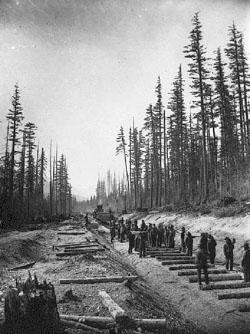Questions and Answers
Awkward English grammar should not stop us from understanding God's Word
Question: In Genesis 9, at first glance, it appears that Ham commits a deplorable action against his father Noah, yet that Canaan receives a curse as a result of that act. Why would God curse a son for his father's action, if indeed this is what is being described? And what kind of act would be so reprehensible as to warrant such a curse? This passage of Scripture does not make sense to me. What is really going on in Genesis 9?
Answer: Let us begin by considering the New King James Version translation of Genesis 9:22–24: "And Ham, the father of Canaan, saw the nakedness of his father, and told his two brothers outside. But Shem and Japheth took a garment, laid it on both their shoulders, and went backward and covered the nakedness of their father. Their faces were turned away, and they did not see their father's nakedness. So Noah awoke from his wine, and knew what his younger son had done to him."
This passage emphasizes twice the role of Canaan, identified as Ham's son. In the phrase "his younger son" the "his" refers not to Noah, but to Ham. How can we be sure? Ham was not the "younger" (Strong's H6996, implying "youngest" according to biblical Hebrew) son of Noah; Japheth was (Genesis 5:32). Yet Canaan was indeed the youngest son of Ham (Genesis 10:6).
We should note that Genesis 9 is far from the only passage of Scripture that raises such confusion about the pronouns. In Exodus 34, we find: "So he [Moses] was there with the Lord forty days and forty nights; he neither ate bread nor drank water. And he wrote on the tablets the words of the covenant, the Ten Commandments" (v. 28). We know from elsewhere in Scripture that God, not Moses, wrote the Ten Commandments on the stone tablets (Exodus 31:18; Deuteronomy 9:10). So, while a casual reading might suggest Moses is the "he" who wrote down the Ten Commandments on stone, we know that the pronoun actually points to God as the writer.
What, then, did Canaan do to merit such a curse?
We know from Scripture that it was not a consensual act; the offense occurred while Noah was intoxicated. Noah was not aware of Canaan's actions until he awoke from his drunken stupor. And we know it was an offense involving Noah's nakedness.
Throughout the Old Testament, we find variations on the phrase "uncover his nakedness." To uncover another's nakedness, in the context of Scripture, implies a violation of sexual propriety.
What exactly was the violation? Here, the Bible gives us only a few clues. It was a sexual sin, and it was something Canaan did to his grandfather Noah without consent. To apply a modern English-language label to the act, one might call it an act of homosexual rape. However, to some, the notion of a homosexual act would imply consent between the participants, so the less-charged term "male-on-male rape" would perhaps be a more precise description of Canaan's abominable sexual assault against his grandfather. Yet even "rape" may be an inadvisable choice of wording, since Scripture does not make clear the exact nature of Canaan's heinous act.
What is the consequence of that curse? For many centuries, Noah's curse of Canaan—often mistakenly called the "curse of Ham"—was used to justify mistreatment of peoples identified as descendants of Ham. For Christians today, however, no ancient curse—and no present economic or social status—prevents them from receiving the full blessings of God through Christ (Galatians 3:28). In our modern day, the practice of slavery has been widely recognized as abhorrent, yet today's Christian is described as "Christ's slave" (1 Corinthians 7:22) and as a bondservant of Christ—who Himself is described as coming in the form of a servant (Philippians 2:7). Despite centuries of misuse of the Genesis 9 account, no human being was created to be inherently the servant of any other human being, yet as Christians we all are called, not cursed, to be servants of our fellow human beings and of our Savior, Jesus Christ.






